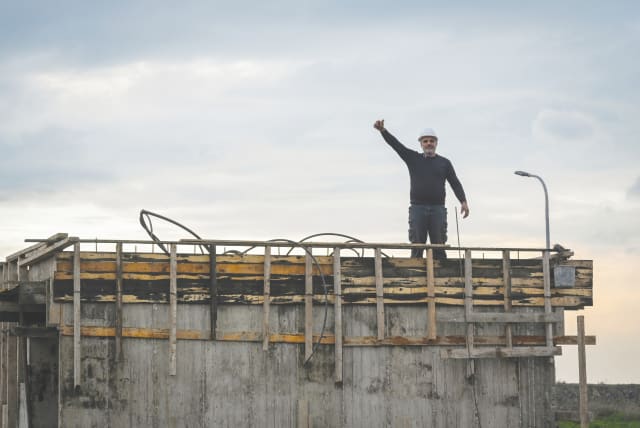Parashat Pekudei: What can we do?

Man is not required to do what is beyond his abilities, but he is also not exempt from doing what is possible for him – and the rest we leave to the creator of the world to accomplish.
Parashat Pekudei describes the carrying out of the instructions given in Tetzaveh – the preparation of the priestly garments and the construction of the Mishkan, the Tabernacle.
The contributions for the construction of the Mishkan and priestly garments were given by the entire nation, and the execution was carried out by Bezalel ben Uri and Oholiab ben Ahisamach, along with “every wise-hearted man into whose heart the Lord had given wisdom, everyone whose heart lifted him up to approach the work to do it” (Exodus 36:2). It was a national celebration of partnership in creating the holy place of which God said: “And let them make Me a sanctuary, that I may dwell among them” (Ex. 25:8).
But after the planks and curtains were prepared for the Mishkan, who actually built the Mishkan itself? Regarding this, Moses himself was commanded:
“And the Lord spoke to Moses, saying: ‘On the day of the first month, on the first of the month, you shall set up the Mishkan of the Tent of Meeting’” (Exodus 40:1-2).
Indeed, Moses did so, as described further:
“It came to pass in the first month, in the second year, on the first day of the month, that the Mishkan was set up. Moses set up the Mishkan... as the Lord had commanded Moses” (Exodus 40:17-18).
The construction of the Tabernacle – twice
If we carefully examine the language of the Torah, we notice that the construction is described twice: once passively, “the Mishkan was set up,” without specifying who erected it; and a second time actively, specifying Moses as the one who acted – “Moses set up the Mishkan.”
The sages of the Midrash noted this duplication and delved into it. They recounted that Bezalel, Oholiab, and the other wise-hearted individuals who crafted the Mishkan attempted to erect it themselves but were unsuccessful. The reason for this was that Moses regretted not being involved physically in the construction of the Mishkan, so God reserved for him the right to build it himself:
“Moses was troubled by all this until the Holy One, blessed be He, told him: ‘Moses, because you were unhappy over the fact that you did not share in the work of the building of the Mishkan, these wise men are not able to erect it....’ Moses replied: ‘Master of the Universe, I do not know how to erect it, either.’ He said to him: ‘Apply yourself to it and it will stand up of itself, for I have written concerning you that you will raise it’” (Midrash Tanhuma, Pekudei).
Thus Moses did not actually erect the Mishkan but only acted as if he did. The one who erected the Mishkan was God Himself.
However, the question arises: Why is it said, “And Moses set up the Mishkan”? What did Moses gain by acting as though he were erecting the Mishkan, when he actually could not erect it himself?
Hidden here is a message for future generations to ponder. Often, we encounter tasks that we should do, but we know that we cannot complete them. Is this a reason to abstain entirely? One might think that if I am unable to complete the task, I’ll leave the work to others. Perhaps this is what Moses thought when he told God that he could not erect the Mishkan himself.
However, God’s divine response to Moses presented a different approach: Do what you can, and do not worry about completing the task. God assists those who do their best and grants them success even if human ability is limited.
We cannot, for example, decide our children’s choices for them, but we can certainly invest in their education, impart values to them, and hope for “heavenly assistance” – divine help that will bring success. This is true in education, in marriage, in fulfilling commandments, and in all areas of life.
Man is not required to do what is beyond his abilities, but he is also not exempt from doing what is possible for him – and the rest we leave to the creator of the world to accomplish. ■
The writer is rabbi of the Western Wall and holy sites.
Jerusalem Post Store
`; document.getElementById("linkPremium").innerHTML = cont; var divWithLink = document.getElementById("premium-link"); if (divWithLink !== null && divWithLink !== 'undefined') { divWithLink.style.border = "solid 1px #cb0f3e"; divWithLink.style.textAlign = "center"; divWithLink.style.marginBottom = "15px"; divWithLink.style.marginTop = "15px"; divWithLink.style.width = "100%"; divWithLink.style.backgroundColor = "#122952"; divWithLink.style.color = "#ffffff"; divWithLink.style.lineHeight = "1.5"; } } (function (v, i) { });

